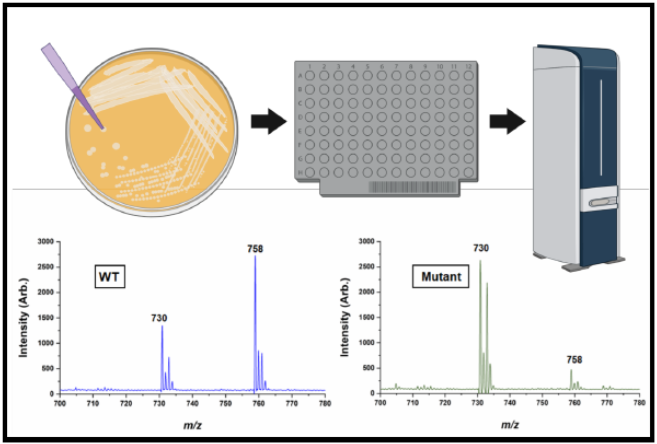A Mass Spectrometry-Based High-Throughput Screening Method for Engineering Fatty Acid Synthases with Improved Production of Medium Chain Fatty Acids.
Themes: Conversion
Keywords: Lipidomics, Metabolomics
Citation
Xue, P., Si, T., Mishra, S., Zhang, L., Choe, K., Sweedler, J.V., Zhao, H. March 26, 2020. Data from: “A Mass Spectrometry-Based High-Throughput Screening Method for Engineering Fatty Acid Synthases with Improved Production of Medium Chain Fatty Acids.” University of Illinois. DOI: 10.13012/B2IDB-9411883_V1.
Overview

Microbial cell factories have been extensively engineered to produce free fatty acids (FFAs) as key components of crucial nutrients, soaps, industrial chemicals, and fuels. However, our ability to control the composition of microbially synthesized FFAs is still limited, particularly, for producing medium‐chain fatty acids (MCFAs). This is mainly due to the lack of high‐throughput approaches for FFA analysis to engineer enzymes with desirable product specificity. Here we report a mass spectrometry (MS)‐based method for rapid profiling of MCFAs in Saccharomyces cerevisiae by using membrane lipids as a proxy. In particular, matrix‐assisted laser desorption/ionization time‐of‐flight (MALDI‐ToF) MS was used to detect shorter acyl chain phosphatidylcholines from membrane lipids and a higher m/z peak ratio at 730 and 758 was used as an indication for improved MCFA production. This colony‐based method can be performed at a rate of ~2 s per sample, representing a substantial improvement over gas chromatography‐MS (typically >30 min per sample) as the gold standard method for FFA detection. To demonstrate the power of this method, we performed site‐saturation mutagenesis of the yeast fatty acid synthase and identified nine missense mutations that resulted in improved MCFA production relative to the wild‐type strain. Colony‐based MALDI‐ToF MS screening provides an effective approach for engineering microbial fatty acid compositions in a high‐throughput manner.
Data
Illinois Data Bank includes:
- Plasmids
- Oligonucleotides
- Sequencing results